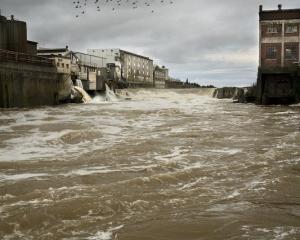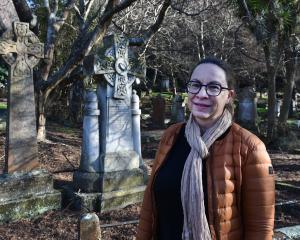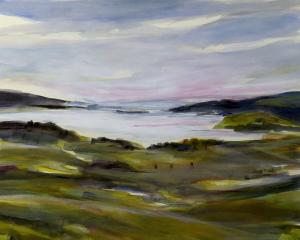
Renee - no surname required - emerged from humble origins to become one of New Zealand’s most influential writers.
A self-described "lesbian feminist with socialist working-class ideals", Renee dispensed with any last name in the 1980s, saying that her first name was the name her mother gave her and the only name she felt was hers.
Born in Napier in 1929 to a Māori mother and Pākehā father just before the Great Depression started to bite in New Zealand, her already straitened family’s circumstances became dire when her father committed suicide when Renee was 4.
At the age of 12 she was forced to leave school and find work so that her two younger siblings could have some formal education.
She married at age 19 and had three sons while working at a chemist’s shop.
Renee began writing for newspapers when she was about 30, when her three children were young. She also began acting for the Napier Repertory Theatre, and for two decades she directed and performed in plays for several theatrical groups and schools in Hawke’s Bay.
She also, finally, was able to receive the education she had craved as a child, studying extramurally through Massey University before becoming an English and history teacher at Wairoa College.
In 1979, she graduated with a bachelor of arts degree from the University of Auckland.
Renee moved permanently to Auckland and her marriage ended in 1981 when she entered into a long-term relationship with a woman.
With the new relationship, which Renee embarked upon at the age of 50, came a new and unexpected career as a writer.
During her time studying, she had worked as a cleaner at Auckland’s Theatre Corporate. Six years later, she returned as a playwright in residence.
In all, Renee wrote 10 novels, a memoir, more than 20 plays, numerous short stories and essays and, for 10 years, a weekly blog.
Her best known work was Wednesday To Come, a play about the women in a working-class family coping in the Depression, which was famously set around a coffin and included scones being baked on stage. It was performed for the first time at Downstage in Wellington in 1984.
In 1989 Renee was awarded the Burns Fellowship and spent a year in Dunedin. During her time at the University of Otago she wrote the play Jeannie Once, launched her first novel Willy Nilly, and drafted her second, Daisy And Lily.
"When I think of Dunedin I remember the people, the friends I made and still have, I think of the landscape, read the poetry, look at the paintings, listen to the music, particularly the choral music, and always there are the rock drawings, the artists who made them, and that enigmatic space in the middle of things," she wrote.
Renee was appointed an Officer of the New Zealand Order of Merit in 2006, for services to literature and drama; and she was awarded the Ngā Tohu ā Tā Kingi Ihaka in 2013, for a lifetime contribution to ngā toi Māori, and the Playmarket Award in 2017, for a significant artistic contribution to theatre in New Zealand.
In 2018 she received the Prime Minister’s Award for Literary Achievement in Fiction, from then-prime minister Jacinda Ardern.
Renee was a member of the New Zealand Book Council, had been a member of the Broadsheet Collective, a member of PEN Otago/Southland and was programme director and vice-president of the Globe Theatre in Dunedin.
She was a much sought after speaker at literary festivals including being keynote speaker at the First International Women Playwrights Conference in Buffalo, New York, in 1988, and the keynote speaker at the third International Women Playwrights Conference in Adelaide, Australia, in 1995.
She was also a member of Words On Wheels Tour for the NZ Book Council in 1992
A lifelong fan of crime fiction, Renee published her first crime novel, The Wild Card, with The Cuba Press when she turned 90, and the sequel, Blood Matters, three years later. Both were shortlisted for the Ngaio Marsh Awards and published in the United Kingdom.
Until shortly before her death, she continued to be an active force in the literary world, writing and publishing work; teaching and mentoring other writers; and presenting at literary events in New Zealand, and overseas via videocall.
Renee died at Otaki, near Wellington, on December 11, aged 94.
- Mike Houlahan and agencies.












